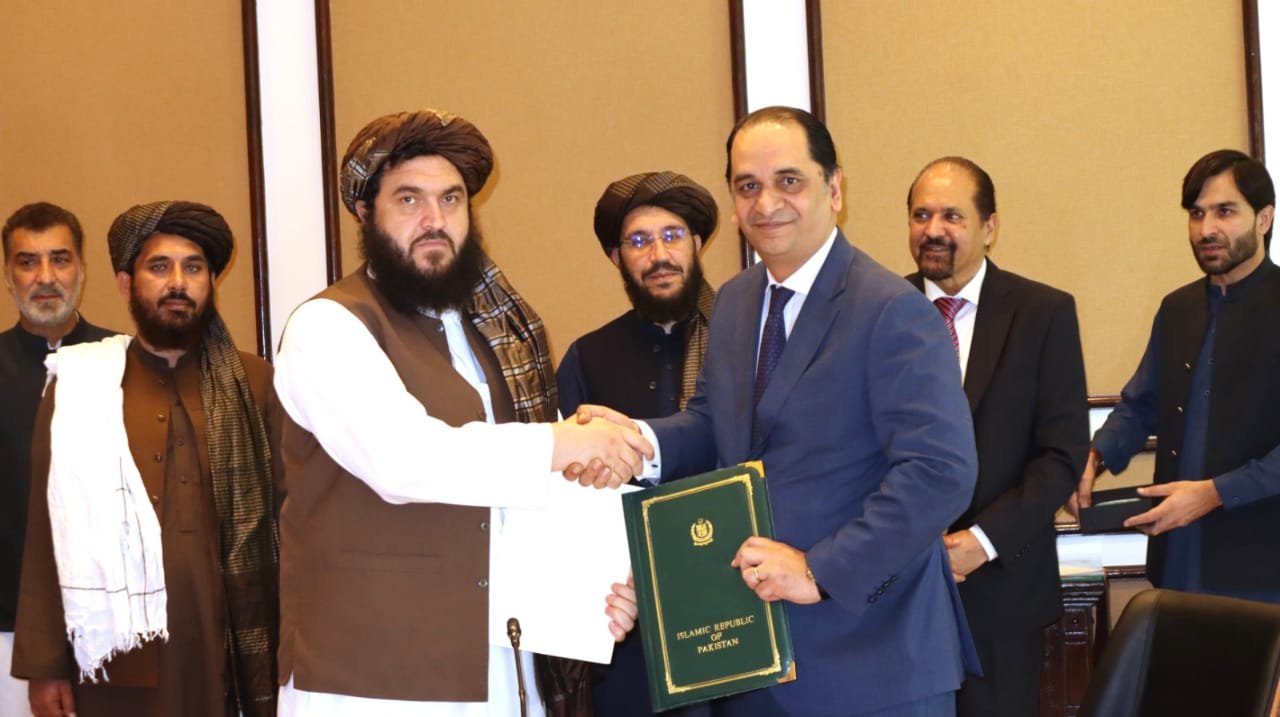Islamabad (TDI): Afghanistan and Pakistan have agreed to reduce tariffs on eight agricultural products as part of a one-year Preferential Trade Agreement (PTA) that will begin on August 1, 2025.
The agreement was signed this week by senior commerce officials of the two sides, reducing customs duties to 27% on goods that had faced tariffs of more than 60%.
The agreement covers four Afghan exports to Pakistan: grapes, pomegranates, apples, and tomatoes, and four Pakistani exports to Afghanistan: mangoes, kinnows, bananas, and potatoes.
The Preferential Trade Agreement (PTA) was formally signed between the Ministry of Industry and Commerce of Afghanistan, represented by H.E. Deputy Minister Mullah Ahmadullah Zahid, and the Ministry of Commerce of the Islamic Republic of Pakistan, represented by H.E. Deputy… pic.twitter.com/Qr90FaGnXW
— AFG Embassy Pakistan (@AfghanEmbPak) July 23, 2025
The deal was announced by the Afghan embassy in Islamabad, which is renewable and allows future negotiations to include more products. Bilateral trade has continued between the two countries despite political tensions, but traders on both sides have consistently demanded reduced restrictions and more stable policies.
The regular closure of important border crossings like Torkham and Spin Boldak, usually due to security issues or political tensions, has interrupted trade flows and caused losses to traders and transporters.
In the first half of 2025, the trade between pakistan and afghanistan reached to nearly $1 billion in the first half of 2025, as per official statistics. Exports from Pakistan were valued at $712 million, including rice, sugar, and medical equipment, and Afghan exports were worth $277 million.
Read More: Pakistan, Afghanistan Pledge Joint Action on Terrorism and Border Security
Although these figures represent an improvement over recent years, analysts say that the trade remains below potential, with some estimates as high as $8–10 billion a year.
Afghanistan-Pakistan economic cooperation has improved in the past few years. Even though the Afghanistan–Pakistan Transit Trade Agreement (APTTA) of 2010 was seen as a breakthrough in regional trade, implementation issues and changing political dynamics have slowed the momentum.
Afghanistan is a landlocked country which depends on access to Pakistani ports like Karachi and Gwadar for trade beyond the region. While naval cooperation is not applicable, there have been talks in the past about the promotion of transit facilitation and improvement in cross-border logistics.
A passionate International Relations student with a strong interest in diplomacy, policy, and global affairs. Dedicated to contributing thoughtful analysis and research on international issues.




